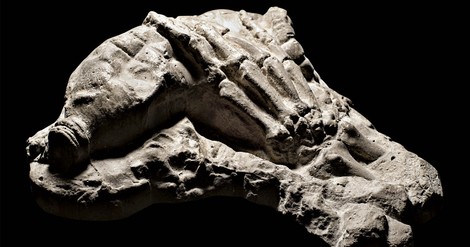Your podcast discovery platform
Curious minds select the most fascinating podcasts from around the world. Discover hand-piqd audio recommendations on your favorite topics.

piqer for: Global finds Technology and society Globalization and politics
Elvia Wilk is a writer and editor living in New York and Berlin, covering art, architecture, urbanism, and technology. She contributes to publications like Frieze, Artforum, e-flux, die Zeit, the Architectural Review, and Metropolis. She's currently a contributing editor at e-flux Journal and Rhizome.
Extinction In The Present Tense
If you’re feeling a bit down today, this isn’t the article for you. New York Magazine writer David Wallace-Wills will likely convince you to be very depressed about climate change.
The facts that he cites to support his thesis that climate change is “worse than you think” are dismal. The warmest summers on record. Death sentences for Miami and Bangladesh. Viral and bacterial plagues released from melting ice caps. Unsurvivable droughts and food shortages. Extinction. Not tomorrow—today. The data, meticulously assembled by the author, is pretty unanimous in proclaiming our current era—not the future—the sixth major extinction to take place on our planet.
Only one of those previous five extinctions (the dinosaur one) was caused by an asteroid hitting Earth. The rest, like ours, were due to greenhouse gas-powered climate change. Just five degrees of warming 252 million years ago decimated 97% of life on the globe at that time. And today warming is rising even faster than it did then.
“Heat is already killing us”, writes Wallace-Wells, and this already is the most important word in climate journalism. While so many essays are written in the future tense—with very real predictions panned off as rough estimations that could still be averted if we just all remember to turn off our lights when we leave the house and take shorter showers—this one uses the present.
Many climate scientists and journalists have been criticized for softening the hard facts; their reticence is understandable. First, because climate deniers have been known to viciously take down reputations, and no one wants to be the target of a right-wing witch hunt. But second, it’s because the truth is just too sour to stomach.
However, if these are the facts, then scientists and writers alike have to take the risk of being called alarmist and give us the heavy truth. “Surely this blindness will not last," writes Wallace-Wells. "The world we are about to inhabit will not permit it.”

this adds to your list of excellent piqs. thanks! and yes, the outlook isn't optimistic. it makes pretty clear that the paris agreement came far too late to advert – or reduce, at least – the human impact on climate change.
David Wallace-Wells also wrote an annotated version that was just published http://nymag.com/daily...